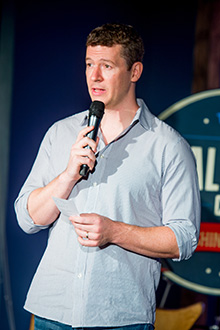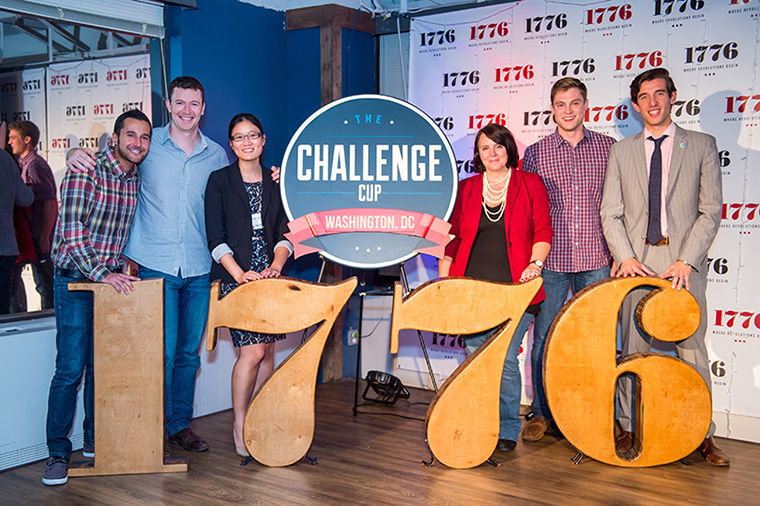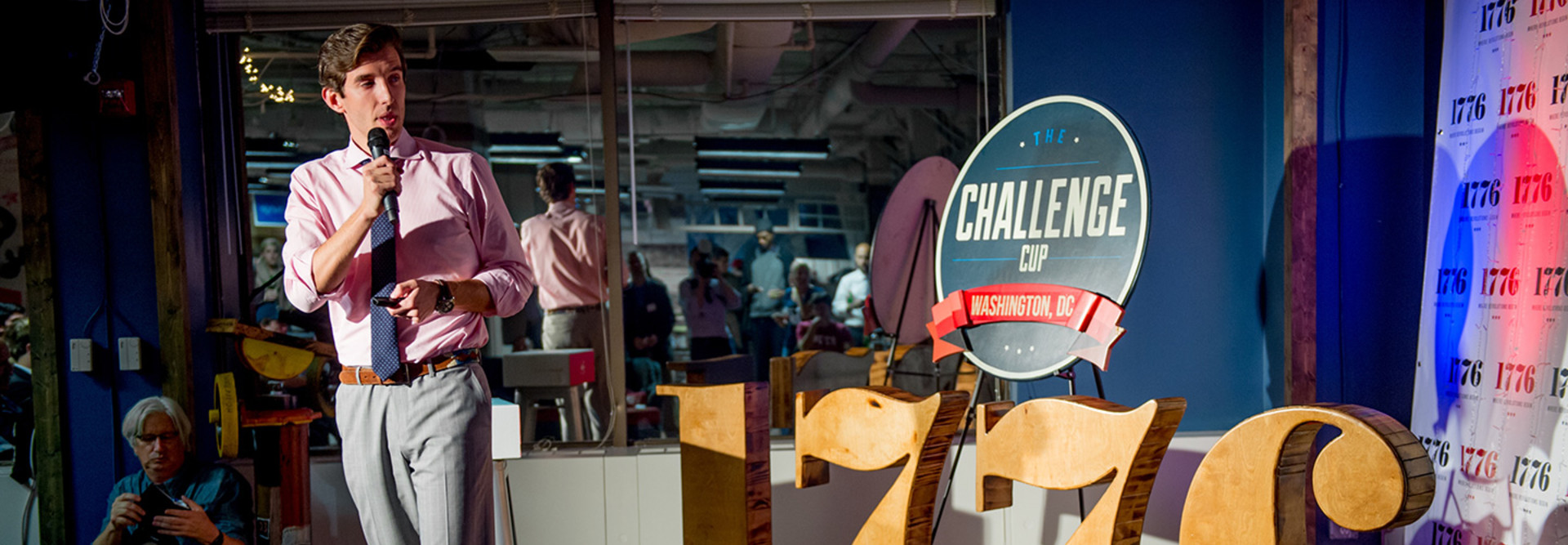Now in Its Second Year, 1776 Offers Startups Valuable Social Capital
You know your startup incubator is a big deal if the mayor of your city is a regular visitor to your campus. 1776, which opened its doors about 18 months ago, has long had the support of Washington, D.C., Mayor Vincent Gray.
But Evan Burfield, co-founder of 1776, knew that the organization had reached a different level when President Obama paid a visit this past Fourth of July weekend.
“I like to joke that we've had a queen, a president and a sultan visit. I’m not saying we’re working on the pope, but it’d be tremendous,” says Burfield with a smile.
The president’s visit, while great from a public-relations standpoint, was also a major validation of the work that Burfield and his co-founder Donna Harris have done since they first conceived of 1776 two years ago.
 “We’re really here building a global community and, frankly, a global movement.”
“We’re really here building a global community and, frankly, a global movement.”— Evan Burfield, 1776 co-founder
CREDIT: Dan Swartz
“The visit from President Obama was just phenomenal. It was great that he chose to come here, but unbelievable that he spent an hour and half here,” says Burfield. “He was pulling some of our entrepreneurs aside and talking with them about the economy and why they were making those choices. It was really as much about him learning as it was about him getting everyone fired up.”
Going Around the World Again
Igniting a startup ecosystem in the nation’s capital seemed like an impossible feat not too long ago. But now that entrepreneurs are popping out of the woodwork left and right in the region, the organization is eager to broaden 1776’s reach worldwide.
“We’re hyper-focused on tackling startup challenges that matter. We don’t pitch it as, ‘We’re here from the nation’s capital, move your company here,’ ” says Burfield. “We’re really here building a global community and, frankly, a global movement.”
Last year, 1776 launched its Challenge Cup competition, trekking across the globe to nine countries in search of the world’s most promising startups in education, energy, smart cities and health. Eight finalists from this whirlwind tour were then brought back to Washington, where one, the charitable-giving platform HandUp, was declared the winner.
On Tuesday, 1776 kicked off the second global Challenge Cup, and this year, the organization is doing things a little differently. For one, they’re going to different cities than those visited last year — for example, Nairobi instead of Cape Town, says Burfield.
They’re also looking to effectively franchise the competitions at the local level by providing the script, setup and rules and leaving it up to each local organizer to implement their own Challenge Cup.
If it works, says Burfield, the competition can expand beyond 16 cities each year. “Next year, we’d love to see 30 or 40 cities around the world competing in the Challenge Cup.”

1776 co-founders Donna Harris and Evan Burfield pose with the winners of the Washington D.C. round of the 2014 Challenge Cup.
Credit: Dan Swartz
Furnishing Second Chances and Social Capital
The reality of startup life is that failures outnumber successes. But the beauty of being a startup is that, often, you can have more than one life — one failed idea can turn into the next big success. That’s what happened to Twitter, which started out as an SMS messaging tool under the podcasting company Odeo, before becoming the micro-messaging social media giant that it is today.
Many of the startups that competed in the first Challenge Cup have made a return in this year’s competition. 1EQ, for example, competed last year with a focus on genetics-based health profiling and wearable-technology fitness tracking. One year later, they’ve pivoted and are now exclusively focused on expectant mothers with their Babyscripts product, which uses wireless scales and blood pressure bands to frictionlessly transmit health data to doctors.
The shift seems to have paid off, as 1EQ ended up being one of eight semifinalists. This second chance might be just what the fledgling company needs to break into the big leagues.
But Burfield believes that social capital is probably the most important thing that 1776 provides to startups. The working space is great, he says, but even better are the legitimacy and validation that come with an association with the incubator.
“It isn’t about the space. The space helps in convening to create the social capital. If you’re a member of 1776, it’s just a lot easier to get taken serious by executives,” he says.
Having an independent entity essentially vet and vouch for a startup — especially in highly bureaucratic industries such as education, energy and government — is a necessary first step to getting the conversation going between startups and industry giants.
“You have to interact with these big legacy institutions, and they’re desperate to get connected with these technologies, but they’re overwhelmed by the thousands and thousands of startups out there,” Burfield says.









